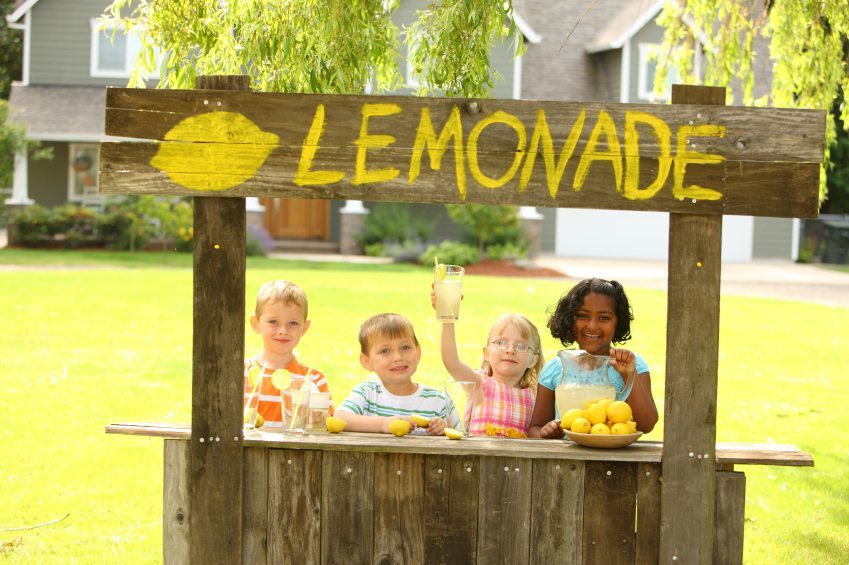Small towns are inherently entrepreneurial. Family owned businesses support the local community rather than the typical big city retail chains. I grew up in a small rural community with approximately 2000 people at the time of my childhood. Large stores and restaurants simply did not exist. The closest grocery store was approximately 40 minutes away. Families were self-sufficient. They grew vegetables in their garden; meat and eggs were purchased from the local farmer.
There was one general store in the center of town. It was called Marie’s Store and yes—Marie was the owner. The store had basic necessities, similar to today’s convenience store without the fancy coffee machines and spinning hotdogs. Marie had an unpleasant personality and always seemed to be mad about something. She especially did not like kids coming into her store. She would not allow the younger kids to purchase without being accompanied by an adult. For those of us who appeared age compliant, she would watch us like a hawk as we walked down the single aisle. When paying for the merchandise, she would impatiently stare at us making this grown-up task even more daunting.
I do not recall what prompted the idea to set up a lemonade stand in front of my house. Perhaps that is just the natural progression of a young entrepreneur. Armed with the assistance of my two friends we built a store front out of cardboard and opened shop. As with most childhood business endeavors, our first customers were supportive adults. They purchased our lemonade independent of whether they were really thirsty.
As we continued to sell more drinks a pile of coins formed before our eyes. Our success prompted the desire to strive for larger sales. We wanted to take our little company to the next level. I ran into the house and rummaged through the cupboards in search of a new revenue stream. Perfect I thought, as I came across my forgotten Halloween candy. I never had much of an interest in sweets, so I simply stowed the stash in the cupboard.
With a large felt tip marker, we added the word “Candy” to the front of our sign. With the new product line we attracted a new market segment; neighborhood kids that were not interested in lemonade would gladly sacrifice their allowance for candy. To our complete satisfaction, the pile of coins increased two-fold!
Of course, each sale contained 100% profit with ingredients that were obtained at no charge from our parent’s cupboard. When our parents shut down our access to free products we had a critical operations issue. We had customers but no product! Then we had a brilliant idea. We would use the proceeds from the previous sales to buy candy from Marie’s General Store. We would add an amount to what we paid and continue to sell to our customers.
Free Digital Skills Training: From Customer Experience to the Right CRM
Being the oldest member of the team, I was able to purchase from Marie’s Store without an adult. With the promise of added sales, I built-up the courage to take on this difficult task. I rode my bike as fast as I could to Marie’s Store and used all our proceeds to purchase candy. I returned to our little stand with an assortment of new product lines. This attracted more kids and we quickly sold out. Before the day ended, I made three more trips to Marie’s Store. With each visit her glare increased as she wondered why I was purchasing so much candy. I began to question how long I could stay on good terms with this single supplier.
However, this problem never came to the surface. Before the need arose for another bike run our little enterprise took a surprise hit. We were shut down by the officials. It seems that several of the parents did not appreciate our customers spending their allowance on a belly full of sugar. Whereas they would not have been allowed to purchase from Marie’s Store, we had bypassed the regulations by offering the kids the option to buy direct.
Our little lemonade store was in business for only two days. However, during that small time frame I was exposed to many of the concepts that I would face as an adult entrepreneur. I learned how an increase in cost of goods affects profit margins. I discovered how to function as a distributor rather than a manufacturer and apply a mark-up to a product for additional profits. When we introduced a new product line and attracted a different market segment, I learned a valuable marketing concept. I experienced the type of problems that arise from a single supplier. Lastly, I saw first-hand how regulations can destroy a thriving business. In this, I learned to respect the effect a business can have on a community.
Yes my little lemonade stand taught me some very valuable entrepreneurial lessons at a young age.
Lori’s ebook, 60 Key Essential key to Business Success, discusses lessons learned while consulting with small and mid-sized businesses. Find more from Lori at BusinessSimplyPut.






